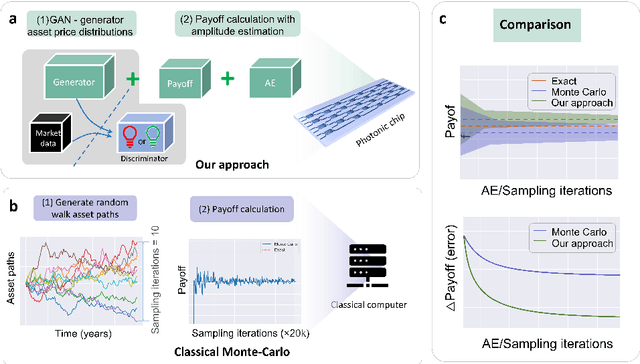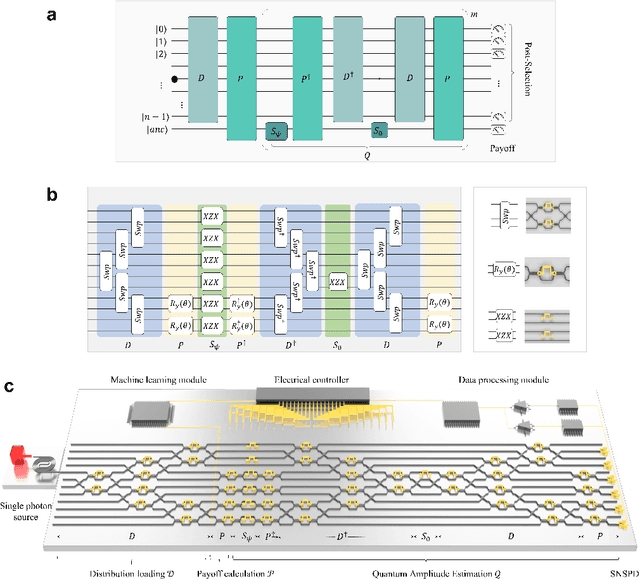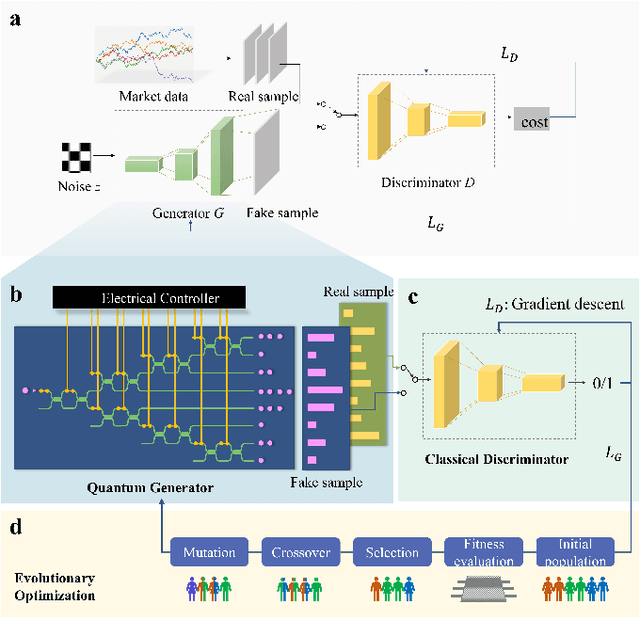Leong Chuan Kwek
Efficient option pricing with unary-based photonic computing chip and generative adversarial learning
Aug 08, 2023



Abstract:In the modern financial industry system, the structure of products has become more and more complex, and the bottleneck constraint of classical computing power has already restricted the development of the financial industry. Here, we present a photonic chip that implements the unary approach to European option pricing, in combination with the quantum amplitude estimation algorithm, to achieve a quadratic speedup compared to classical Monte Carlo methods. The circuit consists of three modules: a module loading the distribution of asset prices, a module computing the expected payoff, and a module performing the quantum amplitude estimation algorithm to introduce speed-ups. In the distribution module, a generative adversarial network is embedded for efficient learning and loading of asset distributions, which precisely capture the market trends. This work is a step forward in the development of specialized photonic processors for applications in finance, with the potential to improve the efficiency and quality of financial services.
Towards Quantum Federated Learning
Jun 16, 2023Abstract:Quantum Federated Learning (QFL) is an emerging interdisciplinary field that merges the principles of Quantum Computing (QC) and Federated Learning (FL), with the goal of leveraging quantum technologies to enhance privacy, security, and efficiency in the learning process. Currently, there is no comprehensive survey for this interdisciplinary field. This review offers a thorough, holistic examination of QFL. We aim to provide a comprehensive understanding of the principles, techniques, and emerging applications of QFL. We discuss the current state of research in this rapidly evolving field, identify challenges and opportunities associated with integrating these technologies, and outline future directions and open research questions. We propose a unique taxonomy of QFL techniques, categorized according to their characteristics and the quantum techniques employed. As the field of QFL continues to progress, we can anticipate further breakthroughs and applications across various industries, driving innovation and addressing challenges related to data privacy, security, and resource optimization. This review serves as a first-of-its-kind comprehensive guide for researchers and practitioners interested in understanding and advancing the field of QFL.
 Add to Chrome
Add to Chrome Add to Firefox
Add to Firefox Add to Edge
Add to Edge